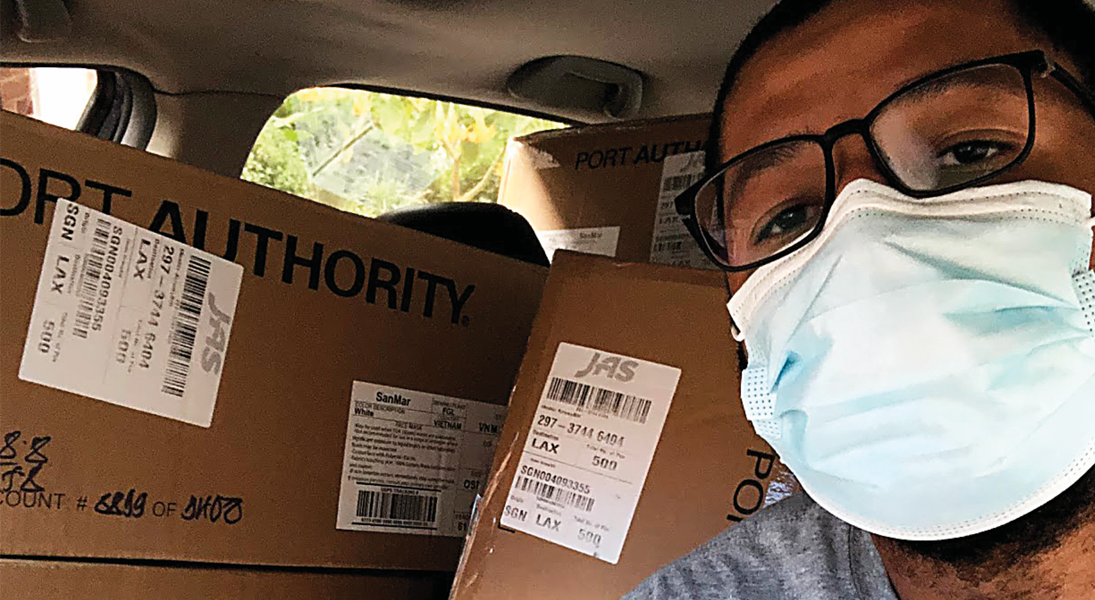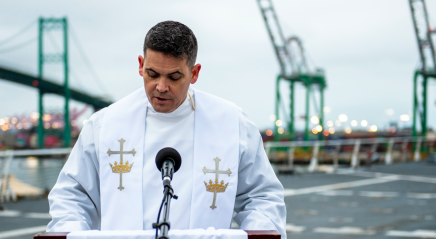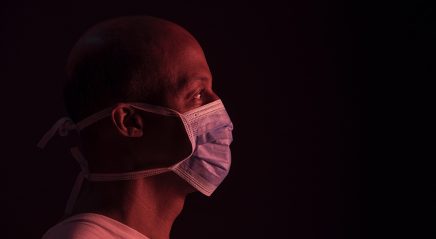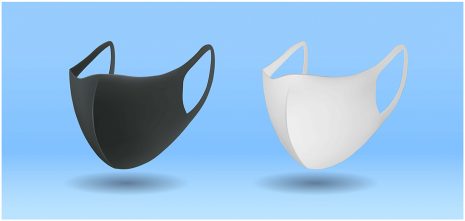Baltimore is home to Johns Hopkins University, renowned for its hospitals, clinics and research facilities. But despite their proximity, some of the city’s African American residents have struggled to get the protective equipment, information and health care access they need to fight the coronavirus pandemic, said Louis R. Tillman IV, pastor of St. Philip Evangelical Lutheran Church in East Baltimore.
Throughout the pandemic, the historic African-descent congregation has ensured that masks and other safety items reach anyone in need. “We’re the only congregation in the synod doing COVID-19 work around personal protective equipment (PPE) and the only church in the city distributing free PPE care kits,” Tillman said.
The need is great. More than 63% of Baltimore’s population is of African descent, as are the majority of St. Philip’s members. And, according to reports from the Centers for Disease Control and Prevention, “long-standing systemic health and social inequities have put many people from racial and ethnic minority groups at increased risk of getting sick and dying from COVID-19.”
In fact, the COVID-19 death rate among people of African descent is 2.1 times that of people of European descent, according to data from the COVID Tracking Project and the Boston University Center for Antiracist Research.
In Baltimore, “we’re in the pocket of [both] privilege and despair all the time,” Tillman said. “It’s an area marked by poverty and crime as well as disparities in health, income, education, transportation and more.” The church’s neighborhood includes not only Johns Hopkins but a housing project with high crime rates.
During the pandemic, St. Philip opted for remote worship and meetings, but its mission and history required that outreach efforts continue, said Patricia Tracey, parish administrator. “It’s in our spirit to help other people; that is what is expected and needed of us,” she added.
Founded in 1890, St. Philip is the oldest African American Lutheran church in North America. Its ministry began with a Sunday school, Our Savior’s Mission, that met in an abandoned grist mill.
“We started as a mission church,” said Regina Patterson, congregation council vice president. “Anything we can do to help others in the community, we do, because that’s what was done for us. … We’re not just trying to be the church on the corner. We showed up and showed out.”
“We want to make sure everyone who needs PPE can get them.”
A finger on the pulse of the community
In fall 2019, St. Philip called Tillman, its 16th pastor. When he was ordained in 2017 at 28, he was the youngest African-descent ELCA rostered minister. As the coronavirus erupted in Baltimore, he embodied the church’s history of leadership and service, Tracey said.
“When the COVID-19 pandemic started, we said, ‘Do we go out and help people?’ Yes, we go out. We do what we can do with whatever materials and ability we might have,” she added.
At that time, local media began reporting what became a persistent shortage of PPE in Baltimore. “Even masks have been impossible to find,” Tillman said. “We have low-end neighborhood convenience stores that sell a pack of five disposable masks for $35 to $50 each.”
The neighborhood’s only grocery store closed in late September, and there have been controversies over sales of severely diluted and contaminated sanitizer supplies. St. Philip decided to fill that need, calling on community groups, ecumenical leaders and contacts in the Delaware-Maryland Synod and across the ELCA.
“Prior to my retirement, I did a lot of outreach around East Baltimore through my job at Johns Hopkins University,” Tracey said. “I still use a lot of these same contacts for outreach work [at St. Philip].”
Community groups and ecumenical partners pitched in to help locate and distribute free PPE. Tillman has driven hundreds of miles throughout the southeastern U.S. in search of supplies, aided by service to his second flock. He serves as chaplain in the U.S. Air Force Reserves. Since June, he has been deployed as a captain to Keesler Air Force Base in Biloxi, Miss., for COVID-19 relief. In his travels, he loads his small sedan with all the PPE it will hold.
To create kits, St. Philip volunteers work an assembly line, Patterson said. They can complete 100 kits in about four hours.
Meanwhile, Tracey utilizes her network to arrange for distribution at a variety of locations. “We want to make sure everyone who needs PPE can get them,” she said. “We have donated kits to the Eager Park Coalition, police departments, housing associations, food giveaways, many congregations, Johns Hopkins [and] Sankofa Children’s Museum of African Cultures.”
First Baptist Church of Maryland, another historic African-descent congregation, includes the PPE kits in its weekly food boxes.
St. Philip members are also educating the community, Tillman said. Since the pandemic began, a rumor has circulated that people of African descent are immune to coronavirus. Congregants aim to dispel such myths through their outreach.
“I think being at St. Philip’s, we have our finger on the pulse of the community,” Patterson said. “Our fire will never burn out.”









